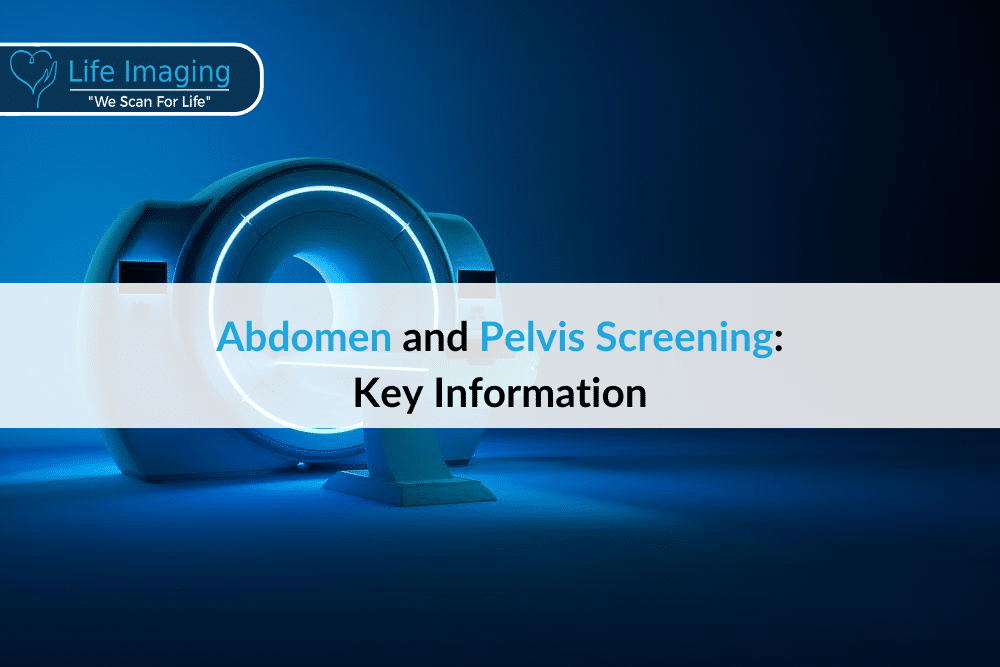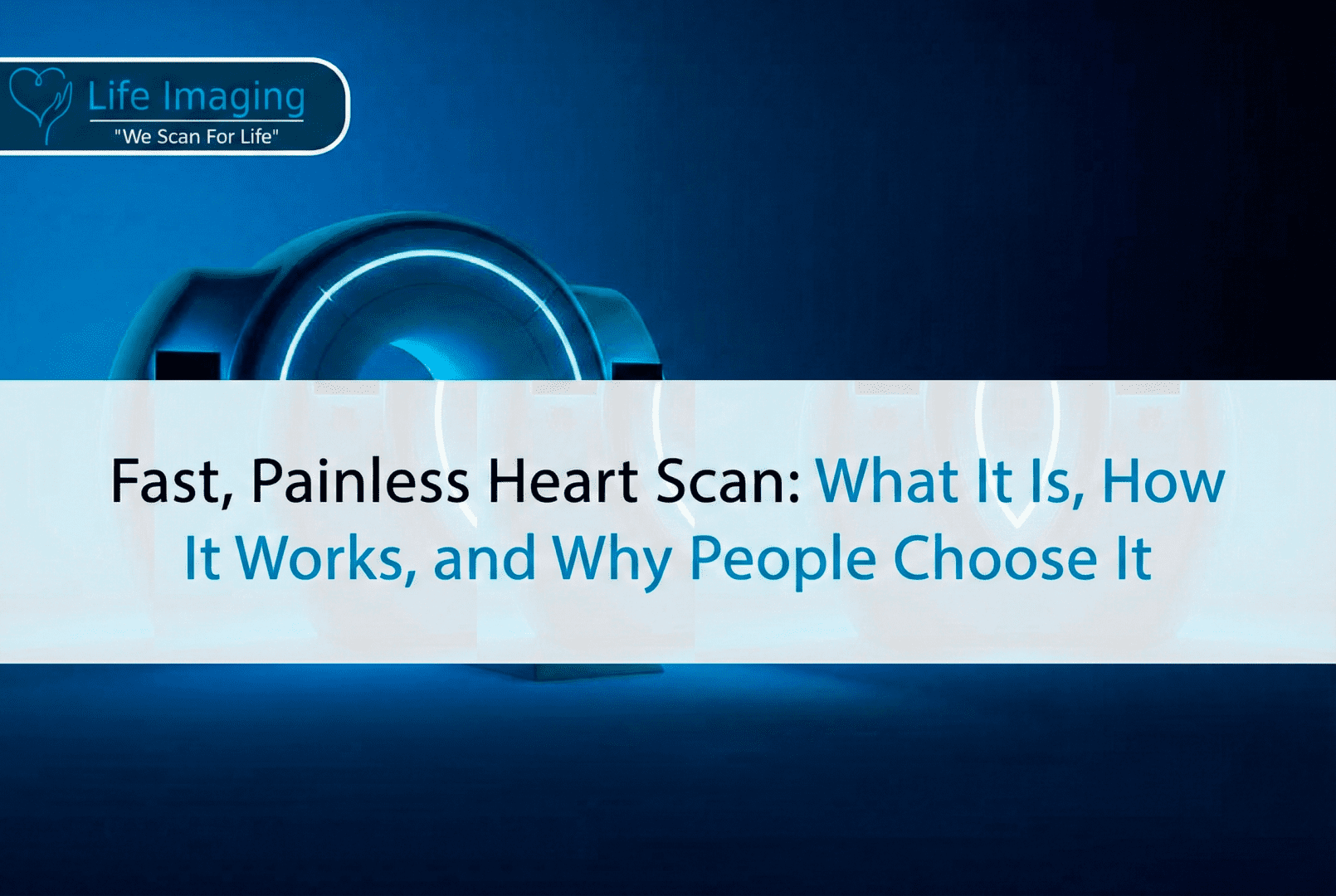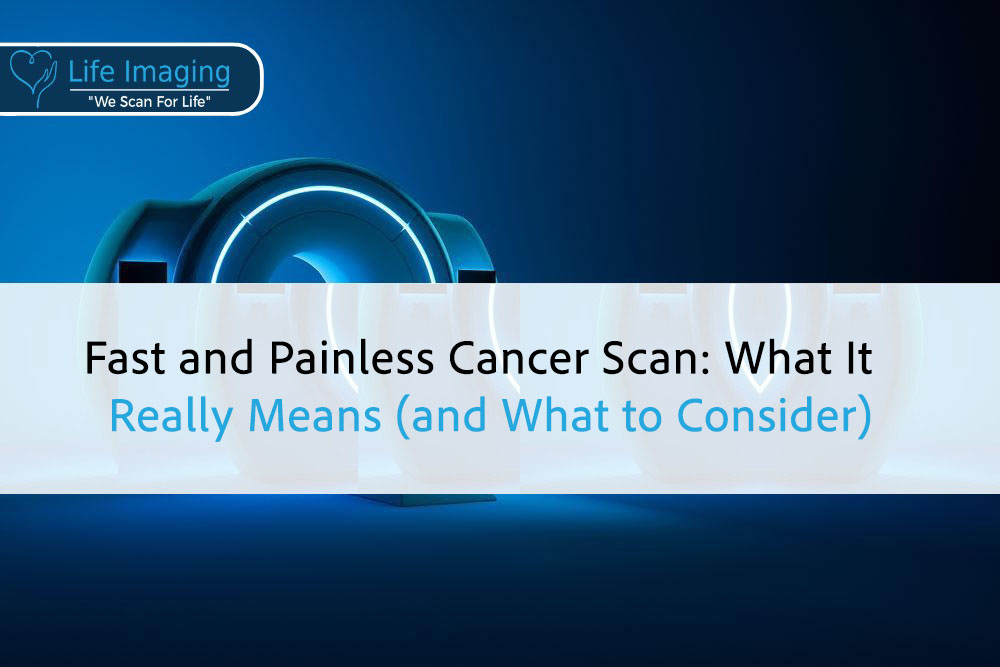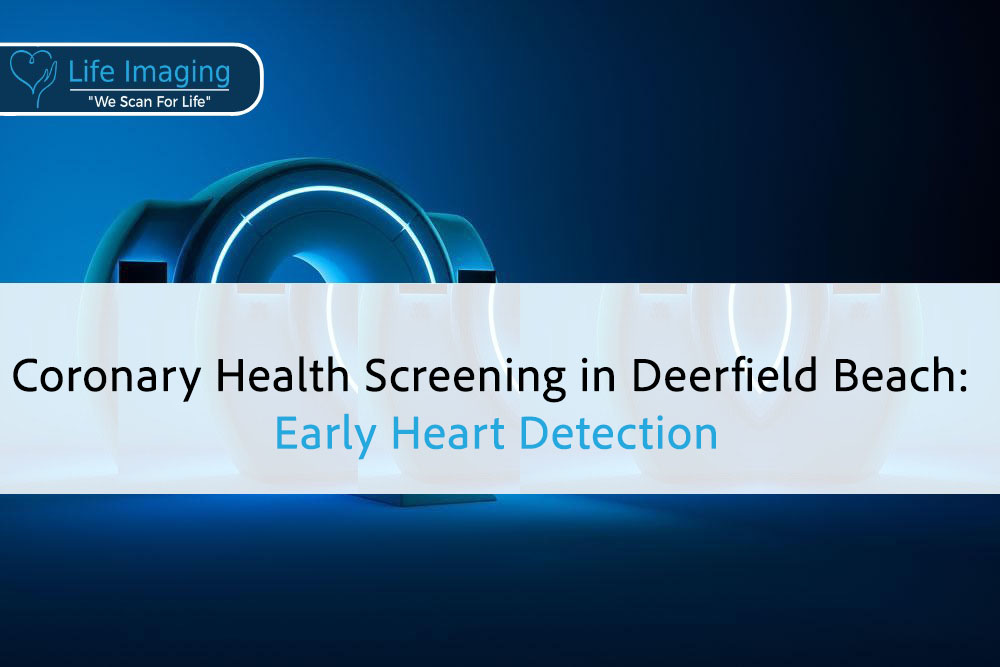
Coronary Artery Scan: What It Shows and Why It Matters for Prevention
Coronary Artery Scan: What It Shows, Who Needs It, and

lie down on a table, which slides into the scanner. It’s important to stay still, as movement can affect the quality of the images. Depending on the type of scan, you might also need to hold your breath for short periods.
Once the scan is complete, you can usually resume your normal activities right away. The images will be analyzed by a radiologist, and the results will be shared with your doctor. Your doctor will then discuss the findings with you and recommend any next steps.
Early detection of health issues offers many benefits. Here are some of the key advantages:
Finding problems early gives you more treatment options. Early-stage diseases are easier to treat and often require less invasive treatments. This can lead to quicker recovery times and fewer complications.
Early detection and treatment can significantly improve your health outcomes. When diseases are found early, they are generally easier to manage and treat, leading to better results.
Knowing that you are taking proactive steps to monitor your health can bring you peace of mind. Regular screenings can help you catch issues early and stay on top of your health, reducing anxiety and worry.
Certain people might benefit more from regular abdomen and pelvis screenings. Here are some of the factors that might make screening a good option for you:
If you have risk factors for conditions like cancer or liver disease, regular screenings can be especially important. Risk factors include a family history of these diseases, smoking, and other lifestyle factors.
If you have symptoms like unexplained weight loss, pain in your abdomen or pelvis, or changes in your digestive system, a screening can help identify the cause.
As you get older, the risk of certain conditions increases. Talk to your doctor about whether regular abdomen and pelvis screenings are right for you based on your age and overall health.
Abdomen and pelvis screenings can reveal a range of conditions, from benign issues to serious diseases. Here are some common findings:
Screenings can detect tumors in the liver, kidneys, pancreas, and other organs. Early detection of tumors is crucial for effective treatment.
Scans can show the presence of kidney stones, which can cause pain and other symptoms. Identifying them early can help manage and treat them before they cause serious problems.
Abdomen screenings can detect signs of liver disease, such as liver inflammation or fatty liver. Early detection can help manage the condition and prevent it from worsening.
Cysts are fluid-filled sacs that can develop in various organs. While often benign, they can occasionally cause problems and might need further examination.
Proper preparation can help ensure that your screening goes smoothly and that the images produced are as clear as possible.
You might be asked to fast for a certain period before your scan. This usually involves not eating or drinking anything for a few hours. Fasting helps clear your digestive system, making it easier to get clear images.
Staying well-hydrated can also help. Drink plenty of water on the days leading up to your scan unless instructed otherwise by your healthcare provider.
Wear loose, comfortable clothing to your appointment. You might be asked to change into a hospital gown, depending on the type of scan.
Let your doctor know if you are pregnant, have any allergies, or have medical implants like a pacemaker. Some types of scans might not be suitable for everyone, and your doctor will need this information to plan the best approach for your screening.
Once your screening is complete, it’s important to understand what the results mean. Here’s what you can expect:
Reading the Images
A radiologist will analyze your scan images and look for any signs of abnormalities. This specialist is trained to identify issues in your abdomen and pelvis area.
Your doctor will go over the results with you and explain any findings. If any issues are detected, your doctor will recommend the next steps, which might include further testing or a treatment plan.
Depending on the results, you might need follow-up care or additional scans to monitor any detected issues. Your doctor will guide you through this process and ensure you get the care you need.
Modern imaging technology has made abdomen and pelvis screenings more accurate and efficient. Here are some ways advanced technology is improving these screenings:
Newer imaging machines produce higher-resolution images, allowing for better detection of small abnormalities. This helps identify issues at an earlier stage.
Advanced machines can complete scans more quickly, reducing the time you need to spend in the imaging center. This is especially helpful for people who might feel anxious or uncomfortable during the procedure.
Newer CT machines use lower doses of radiation while still providing clear images. This reduces the risk associated with radiation exposure, making the scans safer for patients.
Getting ready for an abdomen and pelvis screening isn’t just about physical preparation. It’s also important to be emotionally and mentally ready. Understanding the process and knowing what to expect can help ease any anxiety.
It’s normal to feel nervous about medical procedures, but knowing what will happen can help reduce your worries. Talk to your healthcare provider about the procedure, how long it will take, and what you might feel during the scan. Being well-informed can make the experience less intimidating.
Practicing relaxation techniques can help calm your nerves. Deep breathing, mindfulness, or listening to calming music can be useful before and during the scan. These techniques can make the procedure more comfortable and help you stay still, which is important for clear images.
Having a support system can make a big difference. Bring a friend or family member with you to the appointment if allowed. Their presence can provide comfort and make the experience less stressful.
Different age groups may have unique needs and considerations when it comes to abdomen and pelvis screenings.
For children, the experience can be especially daunting. It’s important to explain the procedure in simple terms and reassure them that it won’t be painful. Bringing a favorite toy or book can help keep them calm.
Teenagers might feel self-conscious or anxious about the procedure. Explain the importance of the scan and encourage them to ask questions. Support their need for privacy and respect their feelings throughout the process.
Adults should follow any preparation guidelines given by their healthcare provider. Clear communication with the medical team can help ensure a smooth experience.
Older adults may have mobility issues or other health concerns. It’s important to discuss these with the healthcare team beforehand. Making special accommodations, such as extra time or assistance, can help make the process easier.
Once your abdomen and pelvis screening is complete, there are a few steps you should follow to ensure you fully understand and act on your results.
The images from your screening will be reviewed by a radiologist. This specialist will look for any signs of abnormalities and prepare a report for your primary doctor. Your doctor will then discuss the results with you and explain what they mean.
It’s important to understand your results fully. Don’t hesitate to ask questions or request explanations for any medical terms you don’t understand. Knowing the details can help you make informed decisions about your health.
Based on your results, your doctor may recommend further tests, treatments, or lifestyle changes. Follow your doctor’s guidance and schedule any necessary follow-up appointments. Keeping up with these recommendations is crucial for maintaining your health.
While screenings are important, taking everyday steps to maintain your abdominal and pelvic health is just as crucial.
Eating a balanced diet rich in fruits, vegetables, whole grains, and lean proteins can support your overall health. Avoid processed foods high in sugar, salt, and unhealthy fats. Drinking plenty of water helps keep your organs functioning properly.
Exercise strengthens your abdominal and pelvic muscles, improves digestion, and supports a healthy weight. Aim for at least 30 minutes of physical activity most days of the week.
Smoking and excessive alcohol consumption can have negative effects on your abdominal and pelvic health. If you smoke, seek help to quit. Limit alcohol intake to recommended levels to avoid adding stress to your liver and other organs.
Regular medical check-ups can help detect problems early. Talk to your doctor about how often you should schedule abdomen and pelvis screenings based on your health history and risk factors.
While abdomen and pelvis screenings are valuable tools, it’s important to be aware of potential risks and limitations.
CT scans involve exposure to a small amount of radiation. While the risk is generally low, it’s important to consider this, especially if you require regular scans. Discuss any concerns with your healthcare provider.
Screenings might sometimes show abnormalities that turn out to be benign. This can lead to unnecessary stress or further testing. It’s important to follow up with your doctor to understand any findings clearly.
Some people may feel uncomfortable or claustrophobic during MRI scans, as the machine can feel confining. If you think this might be an issue, talk to your healthcare provider about options for managing anxiety during the procedure.
While screenings can detect many issues, they are not a guarantee. Some conditions might not be visible or might develop between screenings. It’s important to continue regular check-ups and be vigilant about any new symptoms.
Choosing the right imaging center is essential for getting accurate and reliable screenings. Here are some factors to consider:
Ensure the imaging center uses up-to-date technology and equipment. Advanced machines provide clearer images and can make the procedure more comfortable.
Look for an imaging center with experienced radiologists and staff. Staff with specialized training in abdomen and pelvis imaging can provide more accurate readings and better care.
Consider the location and hours of the imaging center. Choosing a facility that is conveniently located in Orlando and has flexible hours can make it easier to schedule and attend your appointments.
Reading patient reviews can provide insights into the quality of care and the patient experience at the imaging center. Look for centers that have positive reviews and high satisfaction rates.
Answering common questions can help demystify the screening process and ease any concerns you might have.
You might need to change into a hospital gown for the scan. This helps ensure that there is no interference from clothing during the imaging process.
No, the scan itself is painless. However, you might feel a bit uncomfortable lying still or holding your breath at times.
The length of the scan varies depending on the type of scan. Ultrasounds are usually quicker, while CT and MRI scans might take longer. The whole process, including preparation, typically lasts between 30 minutes to an hour.
Yes, you can usually return to your normal activities immediately after the scan. However, if you were given a sedative to help you relax, you might need to take it easy for the rest of the day.
Staying informed and proactive about your health is the best approach to maintaining good abdominal and pelvic health. Regular screenings and a healthy lifestyle work hand-in-hand to ensure you catch any potential issues early and keep your organs functioning well. By understanding the process, choosing the right imaging center, and following up on your results, you can take control of your health and well-being.
Continued monitoring and maintaining open communication with your healthcare provider are key elements in your overall health strategy. Remember, early detection through screenings is a powerful tool in managing and preventing serious conditions. Stay committed to your health journey and take steps today for a healthier tomorrow.
The Role of Healthcare Providers in Abdomen and Pelvis Screening
Healthcare providers play a vital role in the abdomen and pelvis screening process. They guide you through each step and ensure the best care experience.
Your journey starts with an initial consultation. During this meeting, your healthcare provider will discuss your medical history, symptoms, and any risk factors. This consultation helps determine if abdomen and pelvis screening is right for you.
Based on your consultation, your healthcare provider will design a personalized care plan. This plan will outline the type of screening needed, preparation steps, and any follow-up care. Personalized care ensures your unique health needs are met.
After your screening, your provider will review the results with you. They will explain the findings clearly, answer any questions, and discuss the next steps. Follow-up care might include additional tests, treatments, or lifestyle changes.
Healthcare providers offer ongoing support throughout the screening process. They are available to address concerns, provide education, and help you understand every aspect of your care.
Understanding the cost of screenings can help you plan and budget for this important health check.
Several factors can influence the cost of your screening. These include the type of scan, the imaging center’s fees, and your insurance coverage. Advanced technologies like MRI might be more expensive than ultrasounds.
Most health insurance plans cover preventive screenings, including abdomen and pelvis scans. Check with your insurance provider to understand your coverage and any out-of-pocket expenses.
If you don’t have insurance or have high out-of-pocket costs, discuss payment options with the imaging center. Many facilities offer payment plans or financial assistance programs to make screenings more affordable.
Technological advances have greatly improved the accuracy and efficiency of abdomen and pelvis screenings.
Modern imaging machines produce high-resolution images that can detect even small abnormalities. Clearer images mean better diagnosis and early detection of health issues.
Newer machines can complete scans faster, reducing the time you spend in the imaging center. This speed is particularly beneficial for people who might feel anxious or uncomfortable during the procedure.
Advances in CT technology have led to lower radiation doses without compromising image quality. This makes the scans safer, especially for people who need regular screenings.
Artificial intelligence and machine learning are being integrated into imaging technology. These tools can help radiologists interpret scans more accurately and quickly, leading to better diagnosis and treatment planning.
Different types of abdomen and pelvis scans require specific preparations to ensure the best results.
For a CT scan, you might need to fast for a few hours before the procedure. You may also need to drink a contrast dye or receive an injection to highlight certain areas inside your body. Staying still during the scan is crucial for clear images.
MRI scans might require you to remove any metal objects, as the machine uses strong magnets. You may need to change into a hospital gown. Some facilities provide earplugs or music to help you stay calm during the scan, which can be noisy.
Ultrasounds often require you to stay well-hydrated. Drinking water before the scan can improve image quality, especially for pelvic ultrasounds. You might also need to avoid eating or drinking for a few hours before the procedure.
Interpreting imaging results is key to understanding your health and next steps.
After your scan, a radiologist will review the images and prepare a report. This report includes findings such as the presence of tumors, cysts, stones, or other abnormalities. The radiologist’s expertise ensures accurate identification of potential issues.
Your primary doctor will explain the results in detail. They will point out any areas of concern and discuss what they mean for your health. Don’t hesitate to ask questions or request further explanations if needed.
Based on the results, your doctor may recommend additional tests, treatments, or lifestyle changes. It’s important to follow these recommendations to address any health issues promptly.
Regular abdomen and pelvis screenings are important for maintaining long-term health.
Regular screenings can catch diseases early when they are easier to treat. Early detection often leads to better outcomes and less invasive treatments.
Screenings help monitor any changes in your health over time. Detecting changes early allows for timely intervention and better management of conditions.
Incorporating regular screenings into your health routine is a proactive approach to wellness. It helps you stay informed about your health and take steps to prevent serious issues.
Selecting the best screening facility is important for accurate and comfortable screenings.
Choose an accredited imaging center to ensure high standards of care. Accreditation means the facility meets specific quality and safety criteria.
Look for facilities with experienced radiologists and staff trained in abdomen and pelvis imaging. Qualified professionals are essential for accurate readings and patient care.
Patient Reviews and Recommendations
Reading reviews and asking for recommendations can help you choose a reliable facility. Positive feedback from other patients often indicates good service and care.
Personalized care plans are tailored to your specific health needs, ensuring the best possible care.
Your healthcare provider will assess your unique health needs based on screening results. This includes evaluating risk factors, family history, and any current symptoms.
Based on the assessment, your provider will develop a customized treatment plan. This plan may include medications, lifestyle changes, or further testing. Personalized plans are designed to target your specific health issues effectively.
Ongoing monitoring and adjustments are important for effective treatment. Regular follow-ups with your healthcare provider allow for timely adjustments to your care plan, ensuring the best outcomes.
Emotional support is vital for a positive screening experience, especially if you feel anxious or nervous.
Maintaining open communication with your healthcare team can ease anxiety. Ask questions and express any concerns you might have about the screening process.
Joining support groups can provide emotional comfort. Talking to others who have undergone similar screenings can offer valuable insights and reassurance.
If you experience significant anxiety, consider professional counseling. Mental health professionals can provide strategies to manage anxiety and offer support throughout the screening process.
The Future of Abdomen and Pelvis Screenings
Advances in technology and medical research continue to improve abdomen and pelvis screenings.
Researchers are developing new non-invasive techniques that enhance patient comfort. These techniques aim to reduce discomfort while maintaining high accuracy.
Future advancements in imaging technology promise even better image quality. Higher-resolution images will allow for earlier and more accurate detection of health issues.
Personalized screening protocols based on individual risk factors are being developed. These protocols will provide more targeted and effective screenings tailored to each person’s unique health profile.
Your Path to Better Health with Abdomen and Pelvis Screenings
Regular abdomen and pelvis screenings are vital tools in maintaining your health and well-being. These screenings help detect issues early, monitor health changes, and guide personalized treatment plans tailored to your unique needs. Choosing the right imaging center, such as Life Imaging Fla, ensures you receive accurate results and compassionate care.
Understanding each step of the screening process and knowing what to expect can alleviate any anxiety. From the initial consultation to understanding your results, having a clear view of the journey helps you stay informed and proactive about your health. Prioritizing your abdominal and pelvic health through regular screenings and a healthy lifestyle supports long-term well-being.
At Life Imaging Fla in Orlando, we are committed to providing top-notch abdomen and pelvis screenings using advanced technology and experienced radiologists. Our mission is to offer clear, precise imaging and dependable support for your health journey.
Take charge of your health today. Schedule your abdomen and pelvis screening with Life Imaging Fla and ensure you are on the right path to a healthier future. By partnering with our dedicated team, you receive the best care and accurate results that empower you to make informed decisions about your health.
Reach out to Life Imaging Fla now and book your appointment for an abdomen and pelvis screening. Your health deserves the best care, and we are here to provide it. Call us or visit our website to get started on your journey to better health.

Coronary Artery Scan: What It Shows, Who Needs It, and

PREVENTIVE CARE Fast and Painless Cancer Scan: What It Really

Fast and Painless Cancer Scan: What It Really Means (and

Introduction Your heart works hard every second of the day,

Introduction Your heart works around the clock, but changes inside

Introduction Your heart works nonstop, often without a single complaint.

* Get your free heart scan by confirming a few minimum requirements.
Our team will verify that you qualify before your scan is booked.
Copyright © 2025 Life Imaging – All Rights Reserved